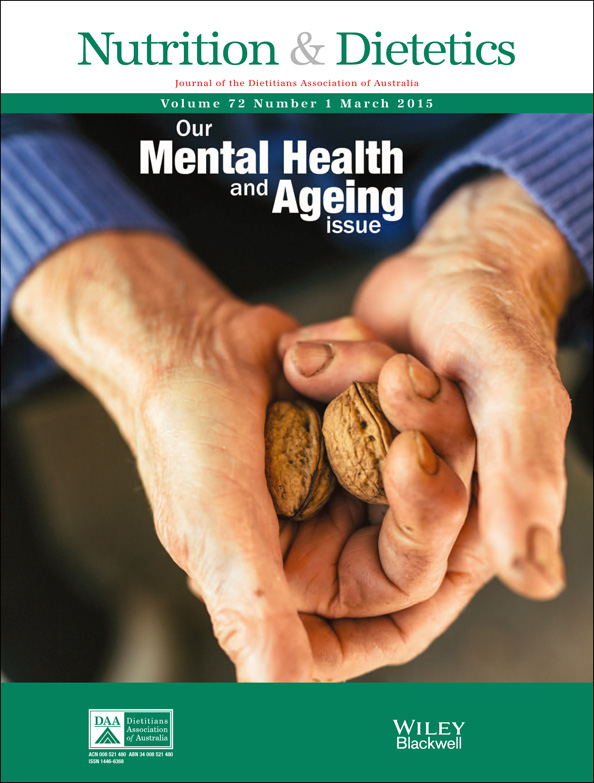Experiences and nutrition support strategies in dementia care: Lessons from family carers
Abstract
Aim
To explore the perceptions of family carers of people with dementia, with emphasis on feeding-related challenges, burden of care attributable to nutrition support, and practical strategies developed to address these challenges.
Methods
A descriptive exploratory qualitative study was undertaken using semistructured interviews from a sample of 14 family carers of non-institutionalised individuals with dementia living in Queensland, Australia. Interviews explored carers' perceptions of feeding and nutrition support, associated burden and strategies applied to address nutrition-related challenges. Interview transcripts were thematically analysed using open-coding and triangular analysis.
Results
Family carers described a range of feeding and nutrition challenges experienced, including physiological, cognitive, emotional, functional and/or behavioural challenges. Carers described the strategies they used to address feeding challenges, which sometimes contributed to carer burden. Family carers felt uninformed and unsupported with respect to nutrition-related care by health professionals. Loss of food intake, weight loss and wasting were reported to be sources of considerable anxiety for the family carers. Most family carers reflected that their experiences of nutrition care had been difficult and a significant component of overall burden of care. They developed a range of practical strategies to address feeding and nutrition challenges, including supervising mealtimes, avoiding disagreements over food, and providing regular snacks and finger foods.
Conclusions
Family carers feel unsupported and uninformed with respect to nutrition-related care of individuals with dementia. Health professionals need to enhance the support and education provided to family carers, including recommending low-risk strategies that have been tried and tested by experienced family carers.




